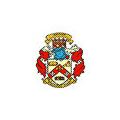Studies & Degrees in International Business
Choose where you would like to study International Business:
AlgeriaArgentinaAustraliaAustriaAzerbaijanBelgiumBoliviaBrazilCanadaChileChinaColombiaCosta RicaCôte d'IvoireCyprusCzech RepublicDenmarkEcuadorFinlandFranceGeorgiaGermanyGreeceGrenadaHondurasHong KongHungaryIcelandIndiaIrelandItalyJapanLatviaLebanonLithuaniaMadagascarMexicoMoldovaMoroccoNetherlandsNew ZealandPanamaPeruPuerto RicoRomaniaRussiaSingaporeSloveniaSouth KoreaSpainSwitzerlandThailandThe United KingdomThe United StatesTurkeyUruguayUzbekistanYemenInternational Business Study Programs
International Business refers to the commercial transactions undertaken by both private and government entities and which involves two or more nations. These transactions cover areas like sales, investment, logistics and transportation. Private organizations usually enter such transactions to make money and governments enter them either to make money also or for political gains or both. The private company is either a multinational corporation (MNC) or a transnational company (TCN) because they operate in more than one country. The company can either be a manufacturer of vehicles or consumer goods or even a fast food chain.
While trade between nations have been going on for centuries, international trade has increase dramatically for several reasons, like globalization, rise of multinational companies and labor outsourcing. This increase to international business has been made easier because of several factors. First, technology in the form of online transactions has made it possible that both the seller and buyer are located in different countries. Second, political relationships among countries are improving. Third, more countries now are signing agreements that will make international trade easier by removing international business restrictions. Fourth, as consumers have access to imported goods and international service, the competition has become global.
The reasons for conducting business abroad are usually for the increase in product sales, the acquisition of assets or resources, access to a labor work force and the minimization of risks. These international transactions usually take the form of imports and exports of goods, tourism and transportation, licensing and franchising, labor outsourcing, direct and portfolio investments. In order for these transactions to be successful, there is a need for people to facilitate these transactions. These people will usually work in marketing, manufacturing, management, accounting, finance and human resources. For those engaged in international business, they must take into account the physical and societal factors of the country they wish to trade with. These factors include the cultural and economic factors, geographical thinking, political and legal systems.
Companies hire International Business graduates for several reasons. One reason is that the company is itself an international one or competes with international companies. The conduct of operations and business may be different from country to country. Students taking the International Business course will learn about the various countries' political and legal systems, economic policies, labor standards, import or export and tariffs regulations. They would also get to know the corporate and local cultures, the climate, education and living standards and other relevant topics.
As a graduate of the International Business course, one must be prepared for possible job assignments abroad. If you are sent to work abroad you would also be working with the local company employees or colleagues who may have different beliefs, unfamiliar customs and culture and speaks a different language. This can cause a lot of frictions and tensions between them and you. If you want to be successful in your international assignment it helps to have a flexible attitude and ability to work within the attitudes, beliefs, culture and customs of that particular country.







